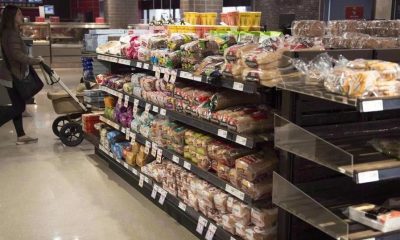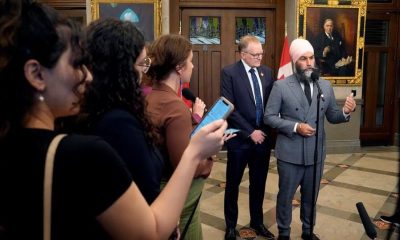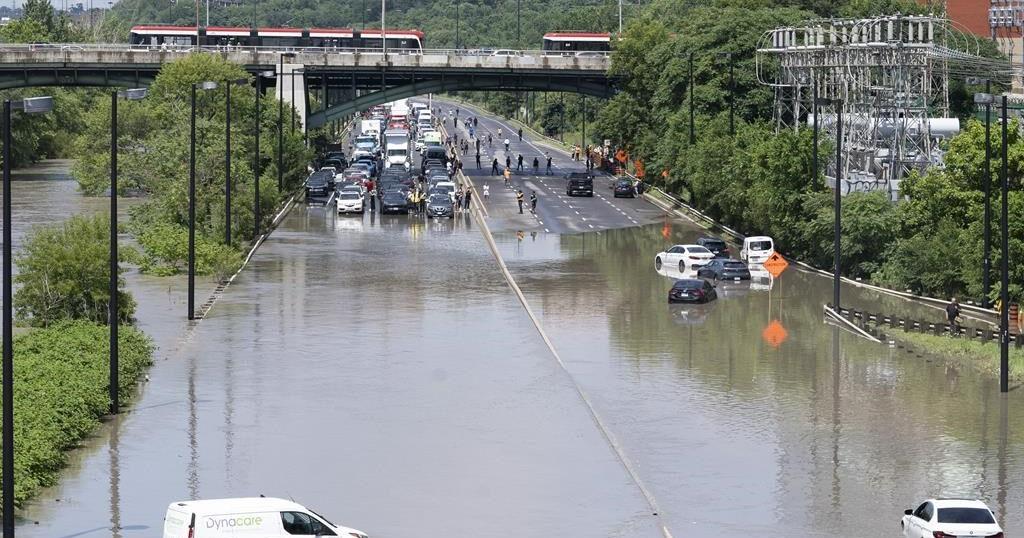Monday’s vote on a Conservative motion to launch an in-depth review of the Liberal government’s COVID-19 response highlights a key challenge of pandemic politics: how to hold a government accountable for decisions based on science, when the science itself is changing nearly every day.
The opposition wants a committee probe into everything from why regulators are taking so long to approve rapid testing to an early decision not to close the border to international travel, and what concerns the Liberals is how that probe is being framed.
“One of the narratives that I find most distressing coming from the opposition, is that somehow because advice changed at some point that the government was hiding information or that the government was giving misinformation,” Health Minister Patty Hajdu said late last week.
“And nothing could be further from the truth.”
It’s not the science itself that’s up for debate, said Conservative Leader Erin O’Toole.
“In a pandemic, borders, since the Middle Ages, have been part of a stop of spreading of the virus and that was a failure of elected officials to put the health of Canadians first,” O’Toole told reporters last week.
“There has been conflicting information on masks and other things. My concern is that the Trudeau government relies more on open source data from China than our own science and intelligence experts.”
The relationship between a nation’s scientists and their senior politicians is a challenging one, said Ian Culbert, executive director of the Canadian Public Health Association.
Chief Public Health Officer Dr. Theresa Tam provides the scientific evidence there is, but at the end of the day, it is the politicians who make the call, he said.
A decision on whether or not to close the borders is a good example, he said.
In the early days of the pandemic, the World Health Organization cautioned against widespread border closures. Scientific research has suggested there’s little medical benefit to them and the economic impacts can be severe and wide-ranging.
READ MORE: Companies warn Tory motion could deter domestic production of PPE
But the optics of border closures, the idea that if countries can keep out a virus out they will be immune, creates political pressure to act, Culbert said .
“The tension between what is in the public’s good, as opposed to all of the varying political considerations the politicians have to take into consideration — there’s always a tension there,” Culbert said.
While heated, the interplay between Liberal government and Opposition Conservatives is a far cry from the hyper-partisanship around pandemic response in the U.S., where even the president has circulated misinformation and challenged that country’s top scientists.
Canadian researchers studying the response of political elites here in the early days of the pandemic found no evidence of MPs casting doubt on the seriousness of the pandemic, or spreading conspiracy theories about it. In fact, there was a cross partisan consensus around how seriously it needed to be taken.
“As far as we can tell, that story hasn’t changed,” said Eric Merkley, a University of Toronto political scientist who led the study.
Both he and Culbert said a review of the Liberals’ pandemic response is warranted, but a balancing act is required.
“Everyone has 20/20 hindsight and thinks that they can go, look back, and and point to points at which bad decisions were made,” Culbert said.
“But that’s with the knowledge that we have today. We didn’t have that knowledge back in March.”
The Liberals have sometimes hit back at criticism by pointing to how the previous Conservative government handled the science and health files, including budget cuts and efforts to muzzle scientists.
But critics can’t be painted as anti-science for asking questions, Merkley said.
“There’s plenty of scope for democratic debate about proper responses to the pandemic, there’s plenty of scope for disagreement,” Merkley said.
“And just because there’s that disagreement and an Opposition party holding government accountable, that’s not necessarily a bad thing. In fact, that’s a sign of a healthy democracy.”
Stephanie Levitz, The Canadian Press
Like us on Facebook and follow us on Twitter.
Want to support local journalism during the pandemic? Make a donation here.
CoronavirusParliament
Get local stories you won’t find anywhere else right to your inbox.
Sign up here
Let’s block ads! (Why?)

Source link
Related






























